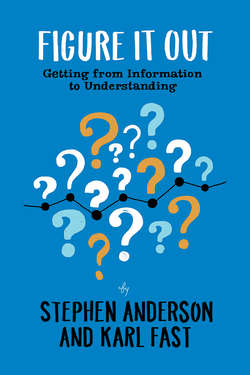Читать книгу Figure It Out - Stephen P. Anderson - Страница 58
На сайте Литреса книга снята с продажи.
WHAT’S GREAT ABOUT STORIES
ОглавлениеWhat’s great about stories, whether fictional or not, is how they inspire. By invoking a basic narrative, we are challenged to do more than we believe is possible, to work together for greater purpose, or to be the best version of ourselves. Want to change how someone thinks about something? You must first change how they feel about it. Stories change how people feel. This is as true of a compelling speech as it is a moving film. We’re certain there’s at least one fictional book that changed you in some way. Personally, I (Stephen) was inspired by the compassion shown to and by Jean Valjean in Victor Hugo’s book Les Misérables. And after reading Cory Doctorow’s book Little Brother, I was moved from being merely concerned about data privacy to actually taking efforts to protect and defend what are basic human rights. Compared to factual accounts, fictional stories have far more influence on changing attitudes and behaviors. It’s not just the explicit narrative so easily discussed. We also experience quiet, personal shifts in narrative: challenging one person to “assume good intent” where there is a conflict with another person, may be enough to change the underlying narrative, confront the source of negative feelings, and in so doing, open the doors for healing.
Whether for harm or for good, it’s important to recognize stories for what they are: ways to assess a situation, in order to predict possible outcomes. Through fiction, we can run through simulations of what might be, whether it’s fiction of our own invention or the fiction we pay to enjoy as entertainment. Stories are hardwired—biologically—to this deeper need for survival. So, this “stories as survival mechanism” is the popular “story” (see what we did there!), but is there more? Let’s delve a bit into the neuroscience behind narrative.
